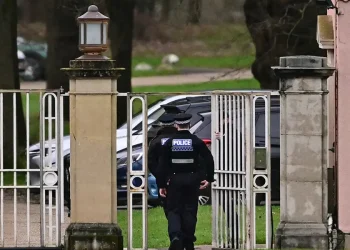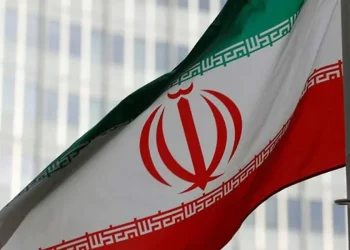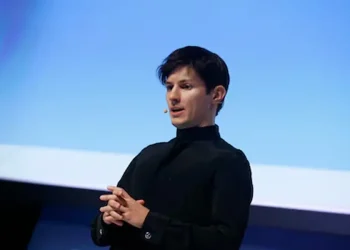KOBLENZ, Germany (news agencies) — Sasha Skochilenko and Sofya Subbotina are planning to get married. That wasn’t an option in their native Russia, but it’s possible now that they live in Germany, which recognizes same-sex weddings.
“We don’t know how or in which city we will do it, but that’s the plan,” Skochilenko, 33, told media, looking lovingly at Subbotina, who radiated happiness.
They reunited earlier this month in Germany, shortly after Skochilenko and other Russian prisoners were exchanged in a historic East-West swap — a happy if unlikely ending to an over two-year ordeal.
Skochilenko, an artist and musician, was jailed for speaking out againts Russia’s war in Ukraine. Subbotina campaigned for her partner’s release while also trying to make her life behind bars as tolerable as possible.
They talked about marriage in Russia, too, but same-sex weddings have been effectively banned there. Laws restricting LGBTQ+ rights have been on the books for over a decade and intensified since the war began as part of the Kremlin’s campaign for “traditional values,” fueled by its anti-Western views and close ties to the Russian Orthodox Church.
Now, “I feel that I’m in a really free country,” Subbotina said, as they make plans for a life together in the quiet city of Koblenz in western Germany.
Skochilenko was arrested in her native St. Petersburg in 2022, just weeks after the invasion of Ukraine, for replacing price tags in a supermarket with anti-war messages like saying that Russia bombed civilian targets. She was charged with making false statements about the military, part of the massive crackdown on all dissent over the invasion.
She struggled in pre-trial detention, suffering from chronic illness, including celiac disease, requiring gluten-free meals. Subbotina commuted to Skochilenko’s jail at least twice a week, bringing food, medicine and other necessities. She and their friends made sure the case, which drew public outrage, stayed in the headlines.
Last year, Subbotina was diagnosed with cancer. “I just felt like I was giving up, and honestly, I was just ready to die,” she said.
The couple didn’t see each other for a year. Since they weren’t married, investigators made Subbotina a witness in the case and refused to allow her visits or to receive phone calls from Skochilenko.
“It is not a small thing, when a person you love can’t visit you,” Skochilenko said.
Subbotina added it was “very painful,” noting that she knows many women who married imprisoned men — often with the wedding held in pre-trial detention facilities or in penal colonies.
“It gives them the right for long visits, it gives them the right to get phone calls, short visits, because they have a certain status in the eyes of the authorities,” she said. “We’ve never had this opportunity.”
Subbotina says she eventually was allowed short visits.
They were always very open about their relationship, despite laws against any public endorsement of LGBTQ+ activities, driven by President Vladimir Putin’s close ties with the Russian Orthodox Church.
Skochilenko said it was clear in the early 2010s the Kremlin was headed in a “homophobic direction,” and some of the laws the authorities were adopting drove her to protest back then. In recent years, she said her openness was a form of activism.
People “often have distorted opinions about the LGBTQ+ community because they don’t know anyone” who loves someone of the same sex, and their views often change once they do, she said.
In November 2023, Skochilenko was convicted and sentenced to seven years in prison — an unusually harsh verdict.
This summer, while awaiting an appeal hearing at a detention center in St. Petersburg, she said there was a point when she reached a particular point of desperation about her long sentence. She said she was traumatized by the lack of freedom and privacy, the constant body searches, and the persisting hunger from being unable to eat prison food.
Subbotina visited her in July, and Skochilenko recalls bursting into tears for the first time in months.










 American Dollar Exchange Rate
American Dollar Exchange Rate